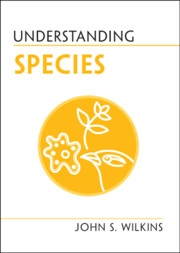Book contents
- Understanding Species
- Understanding Life
- Understanding Species
- Copyright page
- Reviews
- Contents
- Foreword
- Preface
- A Note
- 1 How Species Matter
- 2 Classifying Species
- 3 Making Species
- 4 A Short History of Species and Kinds
- 5 Philosophy and Species
- 6 Finding Species
- 7 Extinction, or How Species Are Lost
- 8 The Value of Species
- 9 Replacing ‘Species’
- 10 Concluding Remarks
- Summary of Common Misunderstandings
- References and Further Reading
- Figure Credits
- Index
4 - A Short History of Species and Kinds
Published online by Cambridge University Press: 06 April 2023
- Understanding Species
- Understanding Life
- Understanding Species
- Copyright page
- Reviews
- Contents
- Foreword
- Preface
- A Note
- 1 How Species Matter
- 2 Classifying Species
- 3 Making Species
- 4 A Short History of Species and Kinds
- 5 Philosophy and Species
- 6 Finding Species
- 7 Extinction, or How Species Are Lost
- 8 The Value of Species
- 9 Replacing ‘Species’
- 10 Concluding Remarks
- Summary of Common Misunderstandings
- References and Further Reading
- Figure Credits
- Index
Summary
Textbook histories are how most scientists learn about the past of the ideas and disciplines they employ, and any textbook will tell you that the idea of species goes back to the classical era if not earlier. In a way this is true, but textbook histories are written by scientists, not historians, and they often repeat untested or false ideas for reasons other than knowing the past. Often, history is something to be used as a way of establishing the in-groups and out-groups of science; in other words, history can be used as a weapon in the sciences. So, some critical revision is required.
Plato’s theory of Forms uses a closely related term ‘idea’ as well as eidos to denote ‘forms’, which are eternal and beyond the physical. Plato, as with philosophers since who are interested in kinds of things, used biological illustrations, such as ‘horse’, ‘human’ and ‘dog’, but he did not think actual horses, humans and dogs were species (or members of a class of things) because none of them, not even Socrates himself, were perfect examples of their forms.
Keywords
- Type
- Chapter
- Information
- Understanding Species , pp. 57 - 73Publisher: Cambridge University PressPrint publication year: 2023

